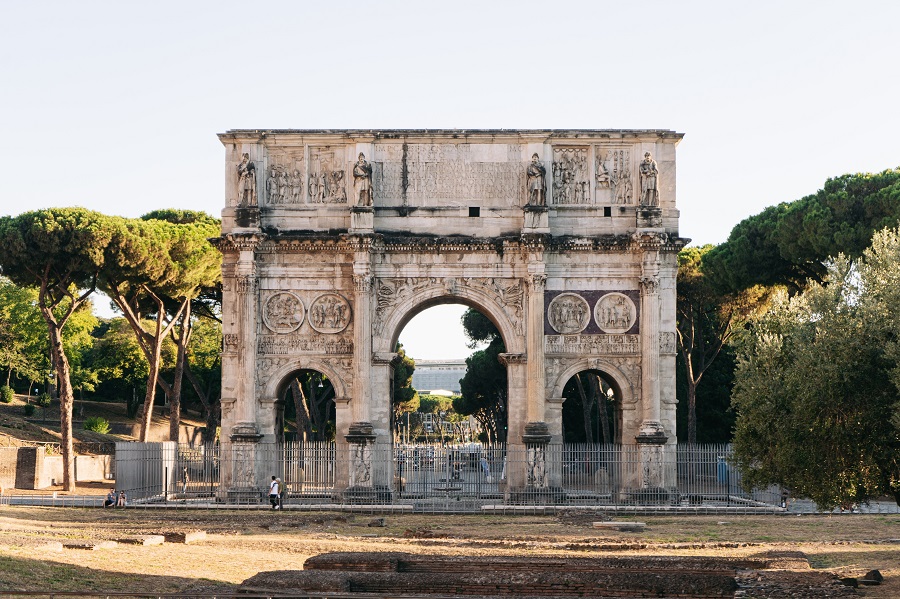
A perfectly successful loser running for mayor of the Italian capital
by Gianluca Navarrini
Mr Zingaretti, former leader of Italian democratic party (PD, center-left), announced the candidacy of Mr Roberto Gualtieri (a former Minister of Economy in Italy, pictured here) as mayor of Rome while inaugurating a park in the Italian capital’s suburbs.

That came after press agencies had registered an arguable Mr Enrico Letta’s declaration. Mr Letta (current PD leader), while indicating Gualtieri, regretted the unavailability of Zingaretti himself to run.
The current PD leader, would have preferred Mr Zingaretti to Roberto Gualtieri because Nicola Zingaretti is a seasoned administrator, at the helm of the Lazio region and former president of the province of Rome.
Mr Gualtieri, on the other hand, appears out of place. And even as Minister of the Economy he had shown himself unsuitable, by temperament, to manage complex administrative mechanisms. The shy and thoughtful Gualtieri was a good European parliamentarian. But not everyone can do everything.
A weak leadership
What really strikes is not the announcement made by Mr Letta, but that by Zingaretti. He first read a pre-packaged declaration and then evaded the questions from press taking refuge behind a “I’m not the candidate for mayor”.
The circumstance demonstrates once again the weakness of Mr Letta. His leadership looks overtaken by the local potentates of the PD. The leader wanted a strong candidate for Rome to beat Mrs Raggi, current mayor of Five Stars Movement (pictured below), against which the PD has been opposing for five years.
Apparently, local PD politicians of Democratic Party intend to honor the bill that Mr Zingaretti signed with the populist Five Stars Movement when he was PD’s leader. These conditions of alliance between the two parties provided that the Five Stars should enter the administration of Lazio region and maintain a mayor in Rome.
Mayor or not mayor, a question for Rome
Mr Gualtieri is the right man in the right place: a prestigious but unattractive profile; a man of culture, but without character; a well-known exponent of the Rome’s Gramsci Institute, unknown in the Roman suburbs, where the real electoral game is played.
I met him only once – for a few minutes – during the by-election of the House (which he won in central, upper-class Rome). On that occasion, he gave a feeling of being in plaster, embarrassed, unable to get in tune with people. He seemed frightened by the whole life he had around him. His guide – a breezy and skilled local administrator of the PD – led him almost by hand. He followed him with empty eyes lost in nothingness.
A perfectly successful loser
Even in his television appearances as Minister of the Economy, Mr Gualtieri often seemed uncomfortable. Classical high school, degree in literature, PhD and chair in contemporary history are hardly the right skills for a Minister of Economy. Used to the silent rooms and libraries of Gramsci Institute, he has the soft language of academic circles combined with the cosmopolitan environment of the European Parliament.

With a similar background, Mr Gualtieri found himself catapulted into the issues of economic and budgetary policy. Stuff for economists or, at most, for jurists. But he, despite his reluctance, faced cameras and interviewers openly.
Without persuasion, but with stoic resignation. His ministerial experience ended with the fall of the Conte II government, precisely because of the shortcomings of “his” Recovery Plan financed by EU.
These are my subjective impressions, of course. But Mr Gualtieri seems to me a perfectly successful loser. After all, he is the right man in the right place. Because the PD – after years of opposition in Rome’s council – could not expressly tell its voters to vote for Mrs Virginia Raggi, the incumbent.
Machiavelli’s Rome versus Byzantine Rome
PD could not could not tell voters to vote for Mrs Raggi in order to avoid losing further consent. Because an opposition that ends up electorally supporting its opponent appears to be without seriousness and credibility. Thus, a perfectly successful loser seems the best, although byzantine, move.
Yet, with such a move, the PD does not look like a party of political struggle, nor government, but only a byzantine party of convenience. Or a Machiavelli’s party at best.
Original article in Italian here.
Translation and editing in English by Gabriele Bonafede.
On cover, Arch of Constantine in Rome. Photo by Fabio Fistarol on Unsplash, full photo here.

 Razzo con equipaggio di sole donne lanciato negli Stati Uniti
Razzo con equipaggio di sole donne lanciato negli Stati Uniti  Evitato il panico, ma la recessione negli Stati Uniti rimane probabile
Evitato il panico, ma la recessione negli Stati Uniti rimane probabile  The best way to tackle US higher tariffs is lower tariffs everywhere
The best way to tackle US higher tariffs is lower tariffs everywhere  Dazi di Trump: una catastrofe annunciata
Dazi di Trump: una catastrofe annunciata  “Emilia Perez”, storia di una trasformazione tra Messico e passione
“Emilia Perez”, storia di una trasformazione tra Messico e passione  Conclave. Ogni papa è eletto da cardinali, ovvero uomini
Conclave. Ogni papa è eletto da cardinali, ovvero uomini 